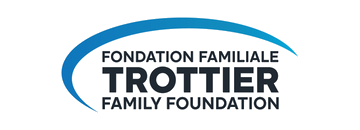The Trottier Family Foundation (TFF) is pleased to announce the results of its recent Community Health request for proposals (RFP). The RFP aimed to improve access to primary medical care for communities facing structural and systemic barriers. The response from organizations across Quebec was inspiring and reflects a deep commitment to advancing health equity across the province.
In recognition of the exceptional quality and scope of the proposals we received, we have increased funding for this RFP to $2,300,000 over two years. We are delighted to support 16 organizations whose work is breaking down barriers to accessing primary care and fostering innovative solutions that aim to make Quebec’s healthcare system more equitable and accessible to all.
This cohort of Community Health grantees highlight the expertise, dedication, and innovation of organizations working on the frontlines and at a systemic level to ensure equitable access to primary care. We look forward to supporting these organizations as they carry out this vital work and contribute to improving access to primary care in Greater Montreal and communities across Quebec.
Partners expanding access to primary care:
Accompaniment & Administrative Support (up to $50,000 / 1-2 years)
Organizations providing navigation and accompaniment services to help individuals navigate the healthcare system.
Quebec Institute for International Research and Education: Support for Migrant Workers to Access Healthcare
This initiative is implemented in partnership with the Centre for Migrant Workers. It aims to systematize and stabilize support services to help workers with precarious or no immigration status access healthcare.
RÉSEAU de la communauté autochtone à Montréal - Inuit Health Navigator Program
This project is being implemented in partnership with the Southern Quebec Inuit Association. The project will support SQIA’s Inuit-Specific Health Navigator Program to provide culturally safe accompaniment, advocacy, system navigation, and treatment adherence support, ensuring equitable and respectful care.
Afrique au féminin: Passerelles PAM – Community Health Support Network
This project aims to facilitate equitable access to primary healthcare for allophone families in Parc-Extension and surrounding areas by creating a model of intercultural accompaniment where women from immigrant backgrounds become community health navigators.
Fondation de la visite – Support by Mother-Visitors to Local Medical Resources
This project supports a parent-visitor program to visit and accompany families with newborns in vulnerable situations to medical resources in their neighborhoods.
Fédération du Québec pour le planning des naissances – Emergency Fund for Pregnancy Termination for Migrants with Precarious Status
This program provides administrative support through referrals, help with scheduling appointments, and financial assistance to cover costs related to pregnancy termination appointments for migrants with precarious status.
Centre d'aide aux familles latino-américaines (CAFLA) – Artère Santé
Artère Santé aims to improve access to primary care for vulnerable communities, including migrants, racialized individuals, people without legal status, and LGBTQ+ community members. The project offers administrative support for health insurance procedures and navigation assistance within the Quebec healthcare system.
Montreal Gay and Lesbian Community Center – Primary Care Access for Migrant LGBTQ+ Individuals
This project strengthens the capacity of the Montreal Gay and Lesbian Community Center to support community organizations across Quebec by providing information and resources to help LGBTQ+ immigrants access primary care.
AGIR Montreal – Bridging Barriers: Advancing Primary Care Access for LGBTQIA+ Migrants and Refugees
This initiative, led by AGIR Montréal in partnership with Clinique Mauve, aims to strengthen advocacy and networks to improve access to primary care for LGBTQIA+ immigrants and refugees. The project will develop a referral system to ensure LGBTQIA+ migrants can access primary care (including gender-affirming care) more quickly, safely, and equitably, while amplifying the voices and lived experiences of marginalized communities.
Delivery of Primary Medical Care Services
(up to $100,000 / 1-2 years)
Clinics and community organizations offering specialized primary care services in community settings, with a focus on reaching populations often excluded from traditional healthcare systems.
Clinique Communautaire Pointe-Saint-Charles – Perinatal Care for Migrants Without RAMQ
This initiative provides prenatal and postnatal accompaniment for women without RAMQ (Quebec health insurance).
Clinique Repères – Improving Access to Local Healthcare
This project supports the provision of frontline services, including medical, nursing, and psychosocial support tailored to users’ needs, while promoting a harm reduction and empowerment approach aimed at strengthening autonomy and quality of life.
Indigenous Health Center Tiotiak:ke – Providing Culturally Safe Healthcare to Montreal's Indigenous Community
The project will support Indigenous people living in Greater Montreal and the South Shore in accessing holistic health services in a culturally safe space. “Cultural safety, in the context of healthcare and other service settings, is an environment where individuals feel safe and respected in their cultural identities, free from racism and discrimination, and where power imbalances are addressed.”
Mobile Pediatric Care Montreal SP2M (Doc Toc Toc) – Mobile Pediatric Clinic: Dedicated Primary Care Access for Asylum-Seeking Children in Montreal
This project aims to create a pathway to primary care for children aged 0 to 5 who are asylum seekers or from newly arrived asylum-seeking families, residing in the northern part of Montreal Island.
La Rue des Femmes – From the Street to the Healthcare System: Equitable Access to Medical Care for Women Experiencing Homelessness
This project supports a primary care clinic within shelters located in the Village neighborhood of Montreal.
Networks & Advocacy (up to $150,000 / 1-2 years)
Coalitions and networks working to improve access to primary care through collective action, such as expanding coverage or addressing systemic barriers.
Centre de bénévolat SARPAD (Home-Based Support and Respite Services for Older Adults) – Building a Compassionate Community for Vulnerable Seniors to Access Health and Social Services
Inspired by the social geriatrics model, the project aims to create a network of partners (community, public, and private) capable of identifying isolated or vulnerable seniors and referring them to SARPAD, which will contact and support them in accessing appropriate health and social services.
Médecins du Monde – Quebec Coalition for Universal Access to Sexual and Reproductive Healthcare During the Perinatal Period, Regardless of Migration Status
This project is implemented in collaboration with the Quebec Public Health Association, SPOT Clinic, Fédération du Québec pour le planning des naissances, SHERPA University Institute, Médecins du Monde Canada, Regroupement Les sages-femmes du Québec, and the Quebec Service for Perinatal Referral for Immigrant Women. The project aims to create a formal provincial coalition to ensure universal access to sexual and reproductive healthcare during the perinatal period for people living in Quebec, regardless of migration status.
Regroupement des Centres d'amitié autochtones du Québec (RCAAQ) – Minukutitau: Having the Clear Eye of a Healthy Person to Continue on One’s Path
This project aims to create a provincial network of urban Indigenous clinics, led by Indigenous Friendship Centers and RCAAQ community hubs, with support from institutional partners.


